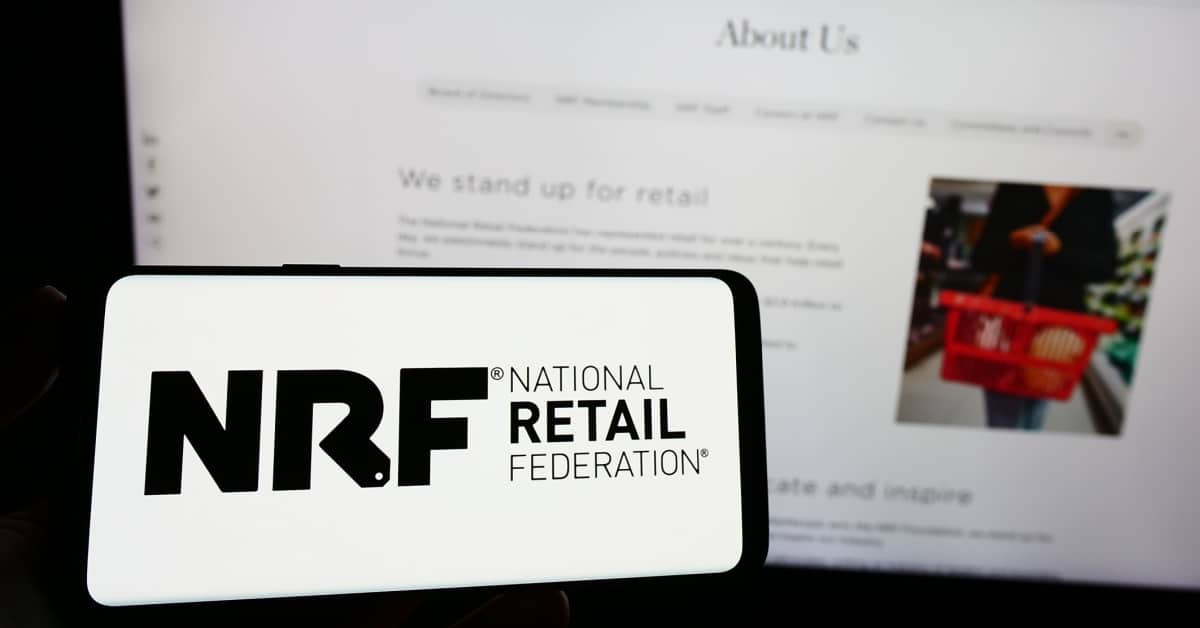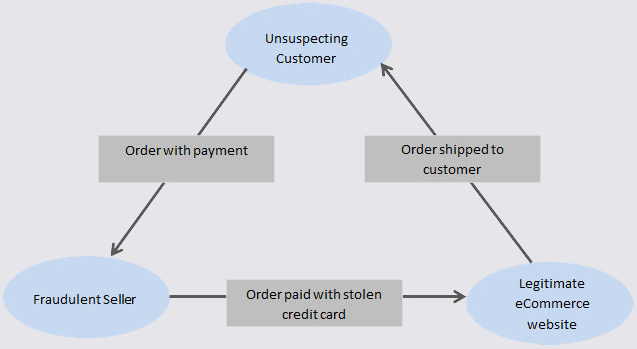US Rep. Spanberger Presses Amazon, Facebook, eBay Over Sale Of Stolen Goods
U.S. Representative Abigail Spanberger is pressing online retailers for information on their efforts to curb the resale of stolen goods, sending letters to Amazon, Facebook and eBay requesting detailed responses about how their companies are working to protect consumers and fight organized retail crime (ORC).

Spanberger's letter says, in part:
Supply chain theft and ORC has detrimental financial impacts for businesses, consumers, and our economy, due to increased security expenses, labor costs, repairs/replacements, and lost revenue. Lost profit leads to a subsequent reduction in tax revenue.
Specifically, ORC costs federal and state governments nearly $15 billion in lost tax revenue, not including lost sales taxes. This ultimately harms the consumer. It is estimated that the average American family will pay more than $500 annually in additional costs due increased prices to offset lost revenue.
E-commerce platforms play a vital role in connecting legitimate small businesses to larger consumer bases. However, criminals often exploit e-commerce platforms to offload illicit goods with relative anonymity.
These criminals typically create front companies on online platforms to advertise stolen goods for resale. They also leverage sophisticated methods, or at times professional money launderers, to further disguise their identities.
She goes on to note that Congress has taken action to address ORC, particularly with the passage of the INFORM Consumers Act, but she believes that more can and should be done - particularly by the ecommerce tech marketplace giants she has singled out with these letters.

Amazon CEO Andy Jassy, Facebook/Meta CEO Mark Zuckerberg, and eBay CEO Jamie Iannone all received identical copies of the letter, requesting that they provide answers to the following questions:
- Please describe follow up actions taken after a seller is suspended for suspicious activity, including any referrals to law enforcement, government agencies, or the affected industry.
- Please describe follow up actions taken after a consumer reports a suspicious activity, including any referrals to law enforcement, government agencies, or the affected industry.
- Please provide information on how your catalogue and retain consumer complaint data that is acquired through the information portal required by the INFORM law, including how the customer long data is retained, and if it is shared with the Federal Trade Commission.
- Please provide how many employees are dedicated to specifically monitoring third party sellers to ensure they are compliant with the INFORM law and are not selling stolen goods (excluding counterfeit goods).
- Please provide an estimate of the average annual sales and profit earned by third parties selling stolen goods on your e-commerce platform.
- Please provide information on any program that provides restitution to retailers after goods are determined to be stolen and sold on your e-commerce platform.
- Please describe steps, if any, your platform is taking to enhance anti-money laundering (AML) and counter-terrorist financing (CTF) programs.
- Please describe legislative solutions that Congress should take to enhance the ability for online marketplaces to address and prevent the exploitation of your platforms for the sale of illicit goods.
Spanberger's efforts are support by her state of Virginia's Retail Federation and similar efforts have also been supported at by the National Retail Federation as well - but as I remarked on last year's inaugural "Fight Retail Crime Day", they curiously leave the massive amounts of digital shoplifting via triangulation and other forms of fraud through these online marketplaces completely out of the Organized Retail Crime discussion.

eBay, Etsy, Amazon, Mercari and many other marketplaces are often used facilitate this sophisticated form of digital shoplifting that impacts huge retailers with an online presence like Target and Home Depot, as well as independent small business ecommerce operations.
Triangulation fraud occurs when a buyer makes a genuine purchase on a third-party marketplace, but the seller fraudulently purchases the product from another legitimate merchant, using a stolen credit card for that purchase.
How Does Triangulation Fraud Work?

First, the fraudulent seller creates listings on a third party platform or marketplace for items they do not have in their possession.
An unsuspecting buyer sees the listing, usually at a "too good to be true" price, and buys the item.
The fraudulent seller then goes to a legitimate ecommerce website or marketplace selling the item, places an order to ship to the unsuspecting buyer and uses a stolen credit card for this transaction.
The legitimate merchant ships the order, not realizing it was fraud until weeks later when they receive a chargeback from the actual credit card holder.
The unsuspecting buyer receives the item they purchased and may not even realize there was fraud involved, often leaving positive feedback for the fraudulent seller.
I've extensively detailed my own experiences when a previous employer was hit with over $160,o00 in triangulation fraud perpetrated through eBay in 2020, including how eBay's PROACT (Partnering with Retailers Offensively Against Crime and Theft) department completely failed to take appropriate action not just to protect my then employer, but also the broader marketplace - acknowledging they have been aware of this type of fraud for over a decade while refusing my offer to share data that could have helped them identify over 4,000 fraudulent transactions on the platform.
For example, earlier this year a man named Tuong Quoc Ho was sentenced to ~8 years in prison and ordered to pay $217,147.87 in restitution after pleading guilty to more than two dozen federal crimes, including the use of stolen identities and credit cards, as well as more than 500 fraudulent PayPal and eBay accounts, to commit over $2 million fraud.

Ho's $2 Million scheme (which stretched from 2013-2020) appears to have been effective in large part due to PayPal and eBay not shutting it down despite a clear pattern of suspicious activity that should have been caught and stopped much sooner -according to the US Attorney's Office, when suspicious activity was detected, the accounts would be temporarily restricted, but Ho modified and used PII of identity theft victims to create fraudulent driver’s licenses, passports, utility bills, and bank statements and was success in getting the accounts reinstated.
When a triangulation fraudster steals a power tool by ordering it from the Home Depot website with a stolen credit card to fulfill an order sold on eBay, it is exactly the same as when a person steals that same tool off the shelf at a brick and mortar store and it winds up being sold on eBay - technology simply makes it much easier to do at a high volume and much harder to catch and prosecute the criminals.
It's difficult to pinpoint the exact costs of triangulation fraud as it's often lumped in with other types of general credit card fraud, but estimates range from ~$10 Billion to $30 Billion+ a year - which may be under-reported as, in my experience, many merchants may not even be aware of this type of fraud or how to distinguish it from normal chargebacks they may receive for other reasons.
Krebs On Security wrote a fantastic article about triangulation fraud in 2015. Interestingly, the triangle graphic used in this article actually came from an eBay help page at the time - showing not only has eBay been aware of this fraud for many years, there is also much more they can and should be doing to combat it.

Dr. Nina Kollars, an Associate Professor in the Cyber and Innovation Policy Institute at the United States Naval War College, also shed light the subject in her Confessions of a Nespresso Money Mule at DEFCon 2019, detailing how she uncovered triangulation fraud operating on eBay as a buyer just trying to save some money on her caffeine habit.
And of course it isn't only a problem on eBay - there are many variations on the theme across most of the major online marketplaces, including some that list items on one marketplace that are then ordered from another marketplace - something the INFORM Consumers Act was supposed to address but so far does not seem to be being enforced or having much of an impact on the practice.
RED ALERT: @AmazonASGTG
— Thai Nguyen (@thainguyeno) August 25, 2024
On-going Amazon scam goes like this..
Chinese seller copies an Amazon listing to list on Walmart marketplace
They sell to a Walmart customer
Chinese seller makes an Amazon customer account
Orders from 3rd party seller and once they ship the item with…
If Spanberger and other politicians taking up the Organized Retail Crime banner want to prove they really do care about consumers and business owners of all sizes, rather than catering only to huge corporations with a large brick and mortar footprint and their retail industry lobbyists, it's far past time to include triangulation fraud and other forms of digital shoplifting in the discussion and to hold marketplaces accountable for stopping the sale of all stolen goods through their sites.


















